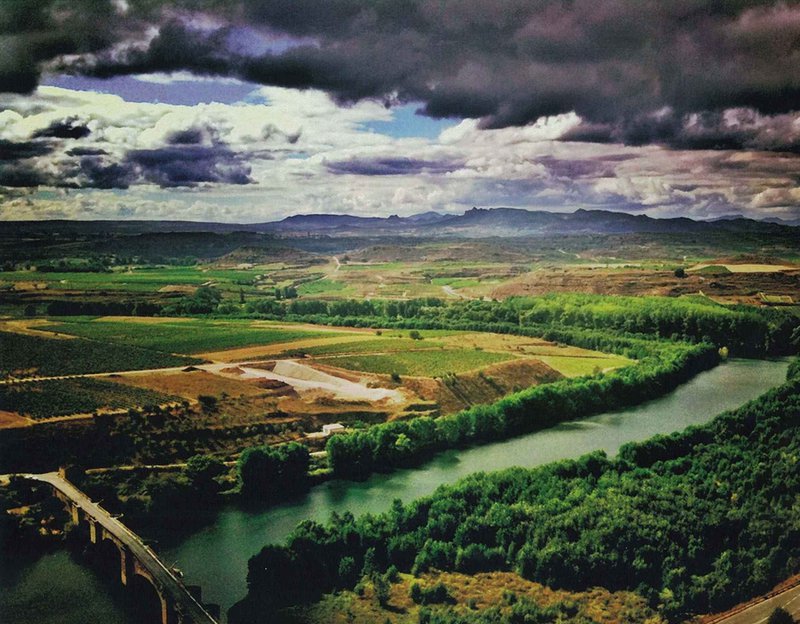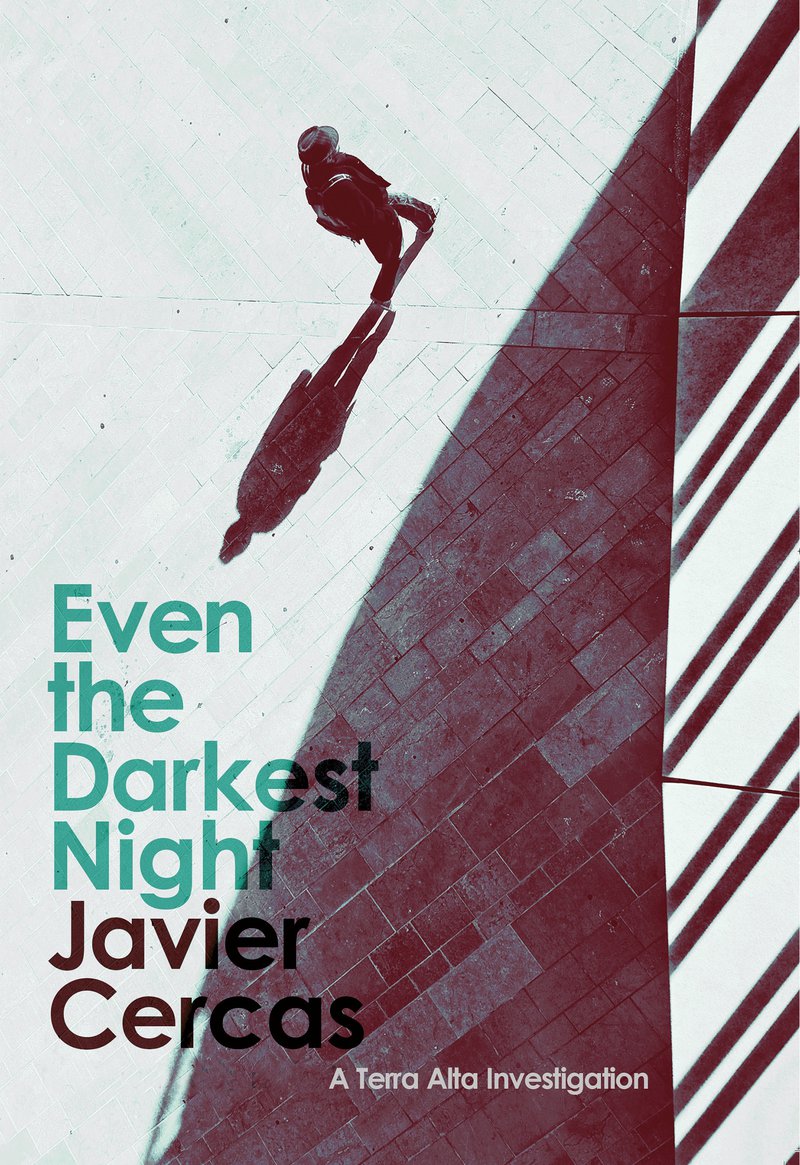Is it legal or is it the right thing to do?
Even the Darkest Night by Javier Cercas was in 2019 a typical winner of Spain’s big fiction prize, the Planeta literary award. The novel published in its original Spanish as Terra Alta is a fast-moving, accessible thriller
IT IS A SERIOUS, SOMBRE, PSYCHOLOGICAL BOOK BY A GIFTED NOVELIST CERCAS HAS CREATED MELCHOR LIKE A CHARACTER IN LES MISERABLES
Through one lens, Javier Cercas’ book is a conventional, accomplished crime novel: cruel murders and a troubled cop with a complex back-story. Melchor Marín is a classic loner detective, with a fierce commitment to justice even when this clashes with the law or the decisions of his police superiors.
Through another prism, Even the Darkest Night is a serious, sombre, psychological book by a gifted novelist. It tackles contemporary events such as the 17-8-17 terror killings on Barcelona’s Rambles and reaches back to the Civil War. Paco Adell, one of the murder victims with which the novel opens, started off in the 1960s as a scrap metal dealer, selling shrapnel collected from the 1938 Battle of the Ebre, “the bloodiest battle in the history of Spain” (p.198). Hard work, ruthlessness and ambition made him the wealthiest man in Terra Alta, the inland country around Gandesa and Corbera, in southern Catalonia.
Indeed, Terra Alta is the book’s title in its original Spanish. When you drive through these hills today, the towns look prosperous. The café terraces are full, graceful trees shade the pavements, and the houses are elegant. The country roads are lined with vines and olives. Cercas, though, knows it better: this backwater is a “poor, isolated, inhospitable” land (p.250). Prosperity only exists for the few and particularly the Adells, the richest family in the county.
And there is a third way of looking at the novel; this, a thoroughly negative lens: that Cercas is exploitative of the terror attacks that took place in Barcelona and Cambrtils, using them to make his story more vivid and contemporary. He does not refer to the implications of the attack’s leader, the Imam of Ripoll, being a police informer, or to the pain of the survivors. One could argue that, by omitting these parts of the story, he is implicitly supporting the state’s cover-up.
Unbelievable?
Melchor is sent to the Terra Alta to escape the furore following his heroic actions in August 2017. When he reaches his new posting in Gandesa, his boss the fiercely independentist Sergeant Blai tells him: “Nothing ever happens here”. Nothing has happened in this backwater, it seems, in the 80 years since the Battle of the Ebre, which is the main theme of old men’s circular tavern conversations. “Here, sooner or later, everything gets explained by the war”, Olga, the local woman that Melchor falls in love with, tells him.
Melchor’s back-story is barely believable. He never knew his father; his mother fought to survive through prostitution; she was murdered; as a teenager he went to jail for being a dealer and gunman for a Colombian drug cartel. There he met two guardian angels: the prison librarian, Guille the Frenchman, who introduces him to books and turns him into a voracious reader, and Vivales, a lawyer who supports him through thick and thin. He studies and becomes a cop.
The first book that the Frenchman gets him to read is Victor Hugo’s Les miserables. Melchor is hooked. He identifies with both Jean Valjean, the poor man condemned to the galleys for stealing a loaf, AND his arch-enemy Javert, the cop so set in his obedience to the letter of the law that he loses sight of justice. Cercas has created Melchor like a character in Les miserables, a legendary figure, obsessive like Javert and transformed, like Valjean. This mythical aspect of Melchor helps make that back-story believable.
A crime novel is a new departure for Cercas. He is still, though, talking of the questions that dominate his other books: the Civil War and the complexity of justice, for example whether violence against the ruthless (terrorists) and the cruel (men who hit women) is justified. Cercas still focuses well on detail, has a great sense of place and moves impeccably back and forth in time. Though the novel is full of violent events, there are long sequences of tense calm: which is to say that his pacing of the stories is excellent. Most of all, he creates rounded characters with psychological depth. Even the Darkest Night is both an exciting crime novel and a book that asks its readers to think.
Hidden in the Forest
Javier Cercas, 60 this year, is the author of about 15 books, among them eight good novels, three of them outstanding: Soldados de Salamina (2001, Soldiers of Salamis), La velocidad de la luz (2005, The Speed of Light) and Las leyes de la frontera (2012, Outlaws).
Several of Cercas’ books revolve around the Civil War. His recent El monarca de las sombras (2017, Lord of All Dead) is a non-fiction novel that investigates a great-uncle of his, a Falangist who fought with Franco. This kid from a small town in Extremadura died aged 19 in Bot, in the Terra Alta. Cercas, a committed anti-Francoist, tries to understand his young relative’s motives. Cercas does not believe in simple, cardboard cut-out heroes or villains. The central image of the million-selling Soldiers of Salamis dramatises a moral dilemma: the Republican soldier Miralles discovers a fascist hidden in the forest, but disobeys orders and lets him go. Very noble – but the fascist goes on to be one of Franco’s ministers, responsible for mass slaughter. Cercas refuses to reduce morally complex questions to black and white.
Hooligans
He is also author of non-fiction books, like The Anatomy of a Moment (2009) and The Impostor (2014). The former was a huge success, because it is written with Cercas’ great skill, but also because it fitted politically with the bipartisan (i.e. PP & PSOE) view of the 1970s Transition. It focused on the roles of three key figures (President Suárez, Army Head Gutiérrez Mellado and Communist Party leader Carrillo) and their courageous behaviour during Tejero’s coup on February 23, 1981. It is a fascinating read, but suffers from Cercas’ major political blind spot. When he talks of these three as artifices of the transition from dictatorship to today’s restricted bourgeois democracy, he ignores the role of a mass movement that, through strikes and demonstrations, impelled Franco’s successors to change the political regime after the dictator’s death.
A political weakness with similar roots underlies Cercas’ support for the suspension of Catalan autonomy in 2017 and the use of police force to prevent the vote on October 1st that year. Cercas believes that a self-serving Catalan ruling class engineered the independence movement. This is false: it was not the bourgeoisie, but a mass movement pressing from below that pushed forward independence demands, just as such a movement had been the main force in defeating Franco. Disappointingly, Cercas then stood with the Socialist Party alongside right-wing hooligans like Vargas Llosa or Álvarez de Toledo and openly fascist grouplets in the anti-independence protests of the misnomered Societat Civil Catalana.
I have heard independentists dismiss Cercas as a fascist. That’s a mistake: he’s a social-democrat. Their political rejection of him means that most refuse to read his books. That’s a mistake, too. He’s a classy writer. He does not falsify reality to fit his preconceptions. And maybe reading fine novelists you don’t agree with is a pretty healthy occupation…




